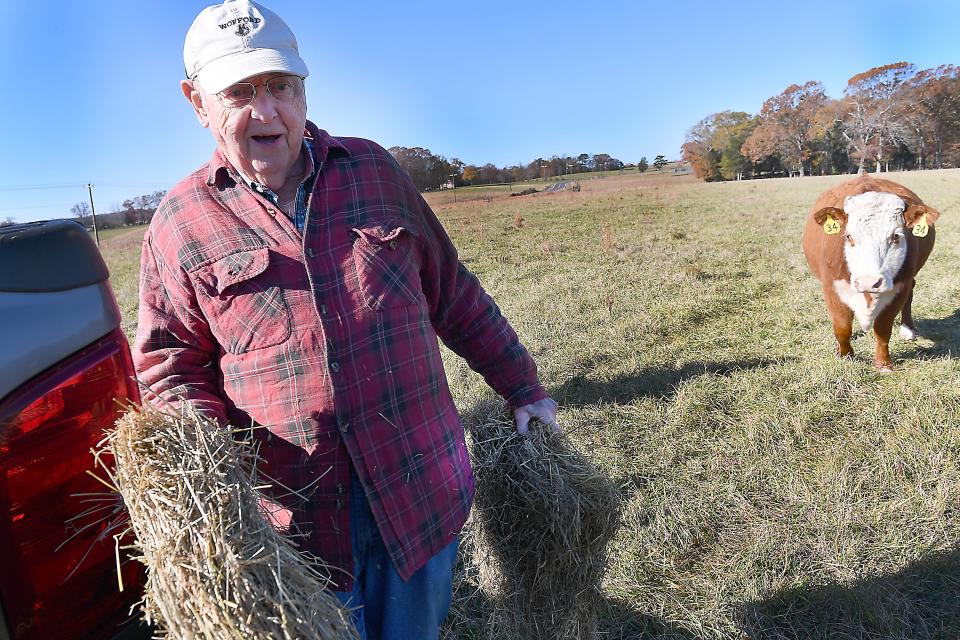Duke pausing power line project in southwestern Spartanburg County as it evaluates feedback
Residents opposed to a planned Duke Energy high-voltage power line and substation in rural southwestern Spartanburg County have successfully delayed the project with the utility now considering alternate locations.
Last fall, Duke officials laid out their plans at a public meeting in the small Green Pond community and planned to hold another public meeting in January.
But an outpouring of opposition from residents and state lawmakers prompted Duke to cancel the meeting and pause the project while it reconsiders its planned routes.
"We have received a tremendous amount of valuable feedback on this project," said Duke Energy spokesman Ryan Mosier. "We are working closely with our project team and Duke Energy leadership to evaluate this feedback and additional information to further refine our plans and communicate the next steps with neighbors in the project area."
At issue is Duke's proposed 100-kilovolt Big Ferguson transmission line and substation project at Greenpond Road and S.C. Highway 417 – 13 miles southwest of Spartanburg and four miles northeast of Woodruff.

Duke Energy purchased the 17-acre site for the substation on June 30, 2022, from Robert Bailey for $384,900, according to property records.
Opponents say the power line would be unsightly and ruin the rural character of the area. They also said the substation should be relocated to S.C. Highway 101 or S.C. Highway 290 closer to Woodruff where much of the energy needs are.
"Our strong and vocal opposition has led to several delays to Duke's original and revised calendar of events for this project," said Martial Robichaud, a Green Pond resident.
Lawmakers who represent the area, including state Rep. Bill Chumley and state Sen. Shane Martin, have asked Duke officials to consider moving the line and substation to a more industrialized area.
"I understand Duke Energy is faced with growing energy demands in my constituent area of southwest Spartanburg County," Chumley wrote to Lynn Good, chair and CEO of Duke Energy. "My concern and opposition are the siting of a substation immediately adjacent to several homes and subsequent high-velocity transmission lines in the middle of a rural farm and agricultural area."
The transmission line with 90-120-foot-tall towers and a 68-foot right-of-way was expected to be completed in 2024. and the substation in 2027.
Duke officials say the power line and substation on a 1.25-acre portion of the site are needed to provide electricity to the growing residential, commercial and industrial development in southwestern Spartanburg County.
"In the case of Big Ferguson, (the substation) will be positioned so that it will relieve four substations – two to the north, one to the east and one to the south," according to Duke's Big Ferguson webpage. "More than two dozen sites were initially considered however, operational requirements and constraints, as well as development considerations, such as topography or parcel shape, eliminated other property sites from further consideration."

Robichaud said because Duke's project involves a 100-kilovolt line, it falls under the 125-kilovolt threshold that would require state Public Service Commission involvement and oversight.
As a result, residents are left with having to use political pressure to achieve their goal, he said.
"People have no recourse because they can't appeal to anyone," Robichaud said. "There's the court of public opinion or we could sue them, but they have cart blanche to do what they want to do."
This article originally appeared on Herald-Journal: Opponents get Duke to delay Spartanburg County power line project

